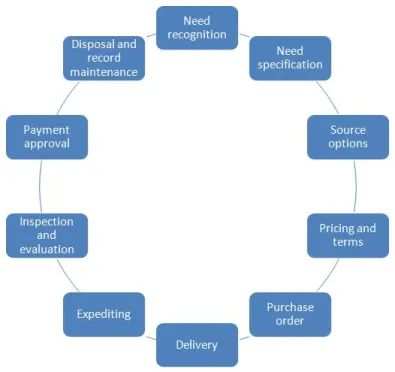Streamlining Your Procurement Process with Advanced Technology
- Jul 22, 2024
- 3 min read
In today's competitive business environment, optimizing procurement processes is crucial for maintaining operational efficiency and cost-effectiveness. Advanced technology plays a pivotal role in transforming traditional procurement into a streamlined, data-driven function. This blog explores how leveraging cutting-edge technology can enhance your procurement process and drive significant improvements in performance.
1. Embrace Automation
Automation is revolutionizing procurement by reducing manual tasks and minimizing errors. Automated procurement systems can handle repetitive tasks such as order processing, invoice management, and supplier communication. This not only speeds up the procurement cycle but also frees up valuable time for procurement professionals to focus on strategic activities. Tools like automated purchase order systems and electronic invoicing streamline the process, ensuring faster approvals and payments.
2. Implement Procurement Software
Advanced procurement software offers a comprehensive solution for managing the entire procurement lifecycle. These platforms integrate with other business systems, providing real-time visibility into procurement activities, supplier performance, and spend analysis. Features like contract management, purchase requisition, and supplier evaluation modules help in making informed decisions and maintaining compliance. By centralizing procurement data, businesses can achieve greater control and transparency.
3. Leverage Data Analytics
Data analytics provides actionable insights that drive better procurement decisions. Advanced analytics tools can analyze historical spending patterns, supplier performance, and market trends. This enables businesses to identify cost-saving opportunities, negotiate better terms with suppliers, and optimize inventory levels. Predictive analytics further aids in forecasting demand and managing supply chain risks, enhancing overall procurement efficiency.
4. Utilize Cloud-Based Solutions
Cloud-based procurement solutions offer scalability, flexibility, and accessibility from anywhere. These solutions enable real-time collaboration among procurement teams, suppliers, and other stakeholders. With cloud technology, businesses can easily integrate with other enterprise systems and adapt to changing procurement needs. Additionally, cloud-based solutions reduce the need for on-premises infrastructure, lowering IT costs and improving data security.
5. Adopt E-Procurement Systems
E-procurement systems streamline the procurement process by digitizing the entire procurement cycle. These systems facilitate electronic tendering, bidding, and contract management, making it easier to engage with suppliers and manage procurement activities. E-procurement platforms often include features such as electronic requisitions, automated approvals, and online catalog management, improving efficiency and reducing administrative overhead.
6. Integrate Artificial Intelligence (AI)
Artificial Intelligence (AI) is transforming procurement by enabling smarter decision-making and process automation. AI-powered tools can analyze vast amounts of data to identify trends, predict supply chain disruptions, and recommend optimal sourcing strategies. Chatbots and virtual assistants enhance supplier interactions by providing instant responses and support. AI-driven insights help in optimizing procurement strategies and improving overall efficiency.
7. Focus on Supplier Relationship Management (SRM)
Advanced technology enhances Supplier Relationship Management (SRM) by providing tools to assess and manage supplier performance effectively. SRM systems offer features like supplier scorecards, performance tracking, and risk assessment. By maintaining strong relationships with key suppliers and monitoring their performance, businesses can ensure consistent quality, negotiate better terms, and mitigate supply chain risks.
8. Implement Blockchain for Transparency
Blockchain technology offers a secure and transparent way to track procurement transactions. By recording each transaction on an immutable ledger, blockchain ensures that all parties have access to accurate and tamper-proof information. This enhances transparency, reduces fraud, and improves traceability throughout the procurement process. Blockchain can be particularly beneficial for industries requiring stringent compliance and audit trails.
Conclusion
Integrating advanced technology into your procurement process can lead to significant improvements in efficiency, accuracy, and cost savings. Automation, procurement software, data analytics, cloud-based solutions, e-procurement systems, AI, SRM, and blockchain are transforming traditional procurement practices. By leveraging these technologies, businesses can streamline their procurement processes, enhance supplier relationships, and stay competitive in a dynamic marketplace. SITES WE SUPPORT
SOCIAL LINKS




Comments